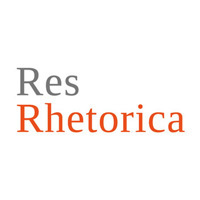Cratos, Crisis and Cognition in Reference to Generative Anthropology and the Scene of Language/Culture Origin
Cratos, Crisis and Cognition in Reference to Generative Anthropology and the Scene of Language/Culture Origin
Author(s): Magdalena Złocka-DąbrowskaSubject(s): Language and Literature Studies
Published by: Polskie Towarzystwo Retoryczne
Keywords: Cratos;crisis;cognition;violence;Generative Anthropology;
Summary/Abstract: This article will interpret Cratos, a mythic character and rhetorical personification present in the works of Hesiod and Aeschylus, as a multilayered and metaphoric figure of cognition, defining him in reference to the hypothesis of the origin of language and culture advanced by Eric Gans’s Generative Anthropology. Cratos was a violent oppressor of Prometheus, involved in provoking a crisis among both gods and humanity. This faithful and ruthless performer of the will of Zeus is viewed here as representing one of the deeper cognitive layers of mythological transfer, that is, as a representation of deferred, but always and anywhere prevalent intra-specific violence, the fundamental source and testimony of crisis in human societies.
Journal: Res Rhetorica
- Issue Year: 8/2021
- Issue No: 1
- Page Range: 137-151
- Page Count: 16
- Language: English

